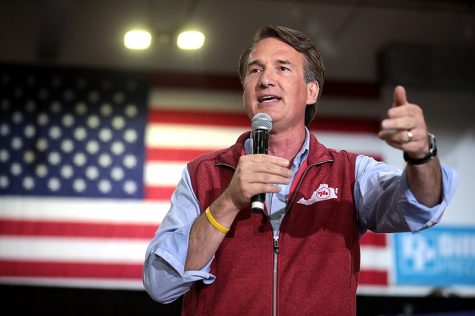Educational “Dress Code”
New laws in Virginia may have a stark effect on school culture, morale, set dangerous precedent
Imagine you’re in a Virginia school. The teacher walks into the room, turns on the projector, and plays a sexy, sexy health education video. The horror! You poor, helpless child! Who will save you now? And suddenly- a beam of light- Section 22.1-16.8 descends from the heavens.

The last election resulted in Republican candidate Glenn Youngkin and his 70 campaign promises brought to power. One of these promises has been fulfilled by Section 22.1-16.8, which was approved by the Virginia House of Delegates on April 6, 2022. It ensures parental notification on sexually explicit content in the classroom.
In layman’s terms, Section 22.1-16.8 promises to provide parental notification regarding anything shown in schools containing sexually explicit content, cited in Section 2.2-282.7 as “any description of or any picture, photograph, drawing, motion picture film, digital image or similar visual representation depicting sexual bestiality, a lewd exhibition of nudity, sexual excitement, sexual conduct or sadomasochistic abuse.”
Power to the parents may sound like a good idea, since they’re responsible for raising their children into a respectable generation. And what parent wouldn’t want to know what schools are teaching? Luckily for parents currently, this shouldn’t be a problem or even a concern. The material of every teacher is reviewed by curriculum coordinators in advance. On the surface, this won’t change much. It’s another critical race theory dilemma: you can’t get rid of something you never taught. As someone who previously stated somewhere in his long list of promises his disdain for critical race theory, it’s not too much of a stretch for Youngkin to promote this sort of unnecessarily restrictive and vague addition to the VA code.

The aforementioned sexual conduct is itself explicit in its definition (see section 18.2-390). Thrown into the definition is the word “homosexuality,” without further explanation. No matter how specific the other definitions are, the mention of homosexuality is never elaborated on. Unsurprisingly, something as vague as that can easily be misconstrued and taken out of context.
Schools have the right to design their own policies based on the models provided by the government. According to ACLU-VA, this could lead to something reminiscent of Florida’s “Don’t Say Gay” bill, claiming to protect students from disturbing, sexually explicit, harmful material that was never taught in schools in the first place.
Don’t expect to see changes yet, but as of January 1, 2023, the policies are required to be enacted. Anticipate an update on this from the Lafayette Ledger, because this is only the beginning.



